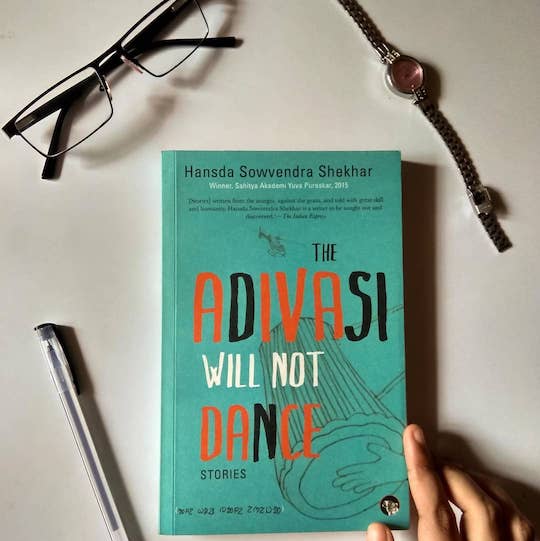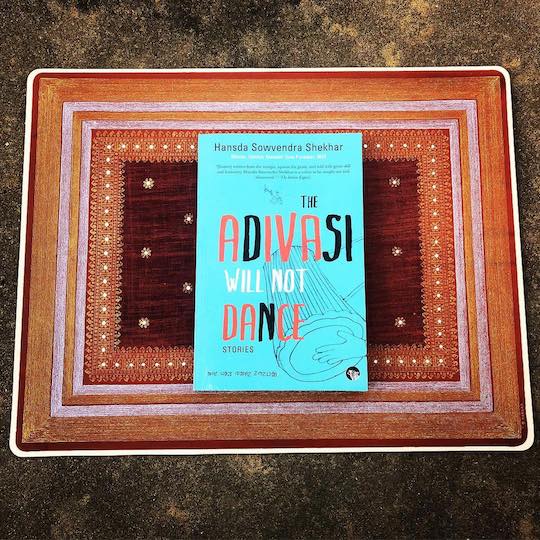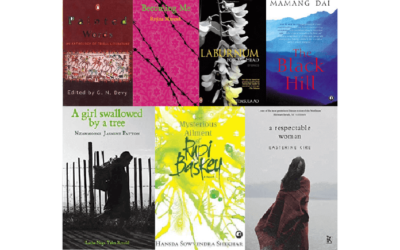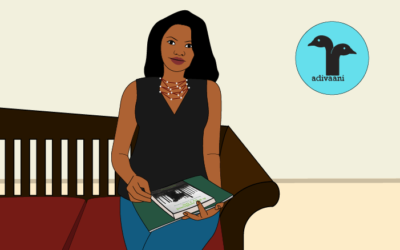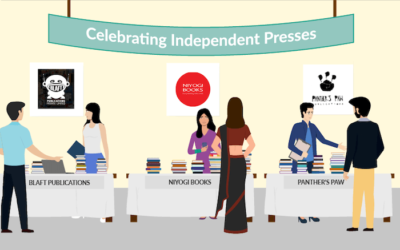Essay
Lessons In Empathy From “The Adivasi Will Not Dance”
It was a sluggish Sunday, just like every other weekend. I was glued to the Literary Review section of my daily newspaper when I stumbled upon a review column. The rather peculiar title of the book read The Adivasi Will Not Dance. I made a mental note but didn’t really give it any more thought. However, in a few days, I came across another column that spoke of the travails faced by both the book and the author (Hansda Sowvendra Shekhar). This time, in between work hours, I took a few moments to do a quick search and ended up ordering the book online.
When the book arrived, the last thing I’d expected was for it to shake me. A quick look at the blurb was enough for me to temporarily abandon the acclaimed classic I was reading then. The seemingly simple sentences with intelligent and uncomplicated metaphors were a far cry from the literary fiction I had buried myself in. The Adivasi Will Not Dance is a collection of ten poignant yet confrontational short stories. The stories are characterised by bold plots and protagonists who defiantly question society. Some stories, which portrayed a subtle form of revolution, moved me to tears.

Identities And The Idea Of Home
In the story titled They Eat Meat, the narrator’s aunt lands up in a city far from home and finds out, much to her annoyance, that she is not able to cook and relish certain delicacies close to her heart. The city here is Vadodara, starkly different from the towns and cities of Orissa and Jharkhand that she is used to. Initially, Aunt Panmuni-jhi is impressed by the sparkling city and its clean exteriors. However, she soon discovers that eating an egg or cooking silver carp are extremely difficult tasks there. The story takes an unexpected turn during the Gujarat riots with the women in Subhanpura Colony standing up for their burkha-clad counterparts in a heroic manner.
Two things touched me in this tale. Firstly, the courage that we women imbibe from each other, especially when under threat. The world requires us to use it in a beneficial manner, in spite of the several identities and labels conferred by society. Secondly, I learnt that home is home, no matter how dishevelled or inconvenient. I no longer yearn for the brilliant lakeside and seaside duplex houses with their sprawling gardens for I know my home is a space where I can breathe without woe.
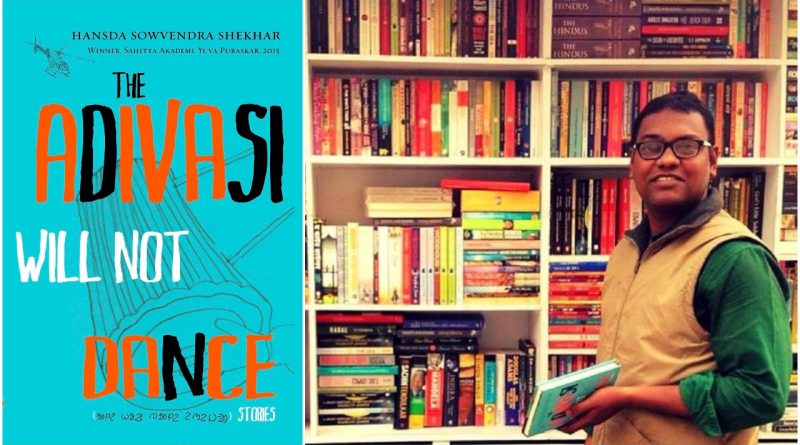
(Image via Adivasi Resurgence)
The Vagaries Of Poverty
The story of Talamai Kisku in November Is The Month Of Migrations still haunts me. Her acceptance of the fact that she must sleep with a policeman for two pieces of cold bread pakodas and Rs. 50 is heart-wrenching. It is specifically highlighted when the policeman says, “Saali, you Santhal women are made for this only”.
Subhashini’s trials (in Desire, Divination, Death) in the face of poverty and helplessness are distressing. This tale of a mother’s struggle to choose between staying by her ill-fated son (when he needs her the most) and going to work to earn money to put some food on the table for her family is one that will stay the longest with me. And, with every recollection, there will be tears, as there were during the first read.
Ever since these women came into my world, I have become more prudent when it comes to wastage. I look for ways in which to use the corner slices and the thick crusts of a loaf of bread, which my family dislikes. Leftovers in the kitchen are promptly reused, and nothing is left to reach the stage of decay because just the thought of disposal conjures a vision of Talamai helplessly staring at the policeman.
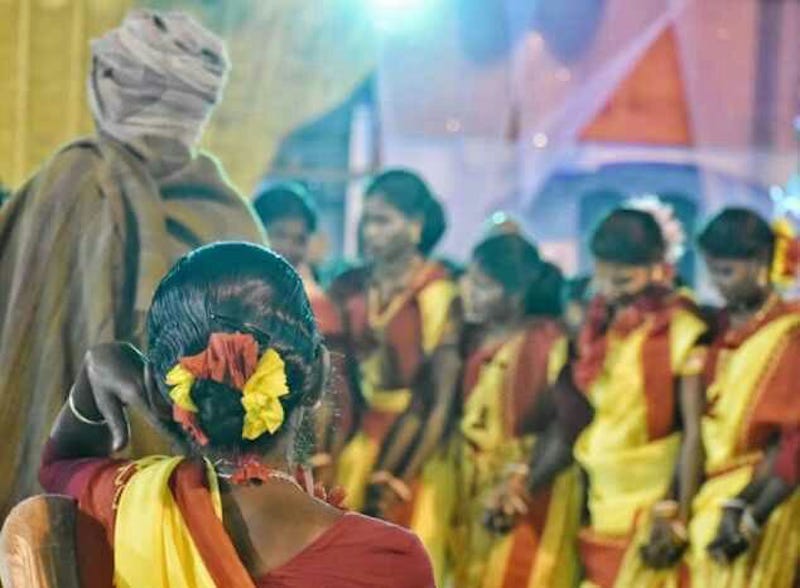
(Image via SPREAD)
The Will To Fight For What Is Right
Another character that has had a deep impact on me is that of Mangal Murmu and his story of grit and valour. The titular tale, The Adivasi Will Not Dance, is the story of an Adivasi man who stood up for what rightfully belonged to him through a simple act of disobedience – refusing to dance and sing in front of the President. This act of revolt, with a large crowd as witness, shows his will-power. Murmu’s resolute stance reminded me of the many leaders and writers around the world who have chosen gentle yet rebellious words as their weapon. Murmu, though uneducated, chose the power of spoken word as his weapon. His act of courage is reminiscent of Bhagat Singh’s ‘you will not be able to crush my spirit’ attitude. This tale of soft revolution using Gandhian ideals is what our hysterically peevish society needs to hear today. After all, as Murmu says, “Which great nation displaces thousands of its people from their homes and livelihoods to produce electricity for cities and factories?”
The story Merely A Whore highlights Sona’s account of torment and misery in the face of humiliation. Her persistence in standing up for love and for what she thinks belongs to her is yet another melancholy tale of fortitude. She holds on to her dignity and grace even in the face of dejection. Sona’s poise is a note to every woman who crumbles at the mere sight of grief.
When Hope Guides Through The Dark
The myriad characters, both men and women, from the troubled lands of India have one thing in common. They hold on to hope even at the onset of devastation and havoc. They are simple citizens without the luxury of educational degrees adorning their names, but their resilience when faced with storms along with an acceptance of their predicament is something we, in our privileged urban settings, ought to absorb. In this time of faux nationalism and polarisation, they show us the real meaning of brotherhood.
These suppressed yet dissenting voices within a conformist nation cry for one trait the country at large lacks – empathy. The characters in the book, representing the many less fortunate beings of the nation, are in dire need of it.
These Santhal men and women have cured my own ignorance and the streaks of bigotry hidden somewhere within the folds of my sub-conscious. Most forest dwellers across the country are now at the risk of losing their homes. What they need now is a collective voice of support and understanding from all sections of the population. With old-school thoughts of conservatism and patriarchy gaining strength across the world, this book is a reminder that we need a violent change along with a tinge of empathy to create an egalitarian nation.
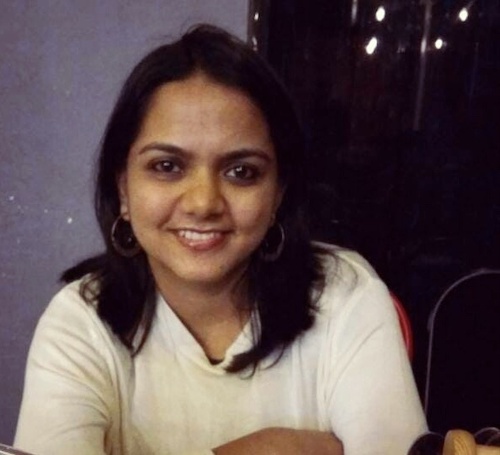
A content editor by profession, Monisha finds solace in words. She is a borderline compulsive reader. Her essays have been published by New Asian Writing and Womens Web. Her works of fiction have been published by Active Muse, Jotted and Juggernaut. She is passionate about travelling and considers coffee the elixir of life. She lives in Chennai, South India and blogs at behindthewoodendoor.wordpress.com.
Read her articles here.

